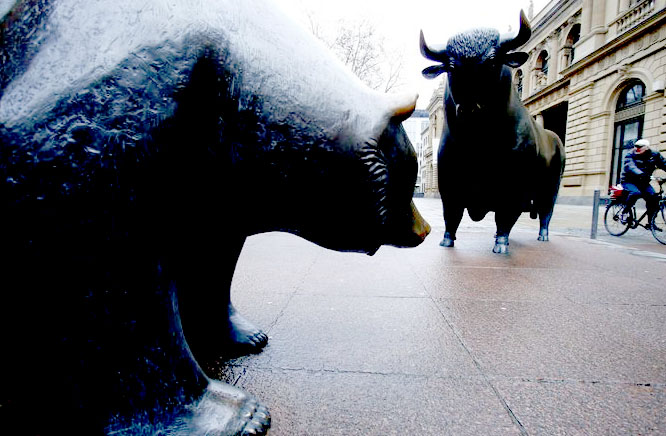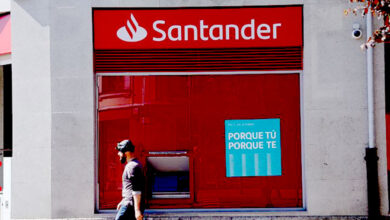European stock futures go down; a rate hike is expected, and fears about COVID weigh heavily.

On Monday, European stock markets are expected to open sharply lower, continuing the global selloff that began after red-hot inflation data raised fears of aggressive Federal Reserve monetary tightening and a rise in COVID cases in Beijing dashed hopes of a sharp rebound in demand from the world’s second largest economy.
At 2 AM ET (0600 GMT), the DAX futures contract in Germany was down 1.5%, the CAC 40 futures contract in France was down 1.5%, and the FTSE 100 futures contract in the UK was down 0.8%.
Friday was a very bad day for European stocks, and Monday’s big losses in Asia are likely to make things worse at the start of the new week.
The Nikkei in Japan, the KOSPI in South Korea, and the Hang Seng in Hong Kong all fell about 3% on Monday, and U.S. equity futures pointed to further losses as investors digested news that the consumer price index in the United States rose by the most from one year to the next since December 1981.
This hurt the hope that U.S. inflation had reached its peak and made it more likely that the Federal Reserve, which meets later this week, will keep tightening money even after the 50 basis point hikes for June and July that are already priced in.
Sunday’s news of a “ferocious” COVID-19 outbreak in Beijing’s most populated district, Chaoyang, made things worse for the market. This led to three rounds of mass testing and raised concerns about tighter lockdowns just a few days after the end of a long period of mobility restrictions that hurt economic growth.
This is because, at the end of last week, the European Central Bank confirmed that it plans to raise interest rates by 25 basis points in July and another 25 basis points in September, which is bad news for the economy.
The U.K.’s GDP fell 0.3% in April, which was much worse than the 0.1% growth that was expected. The U.K. government also risks reopening old Brexit wounds because it is expected to propose a law that would let U.K. ministers override parts of the Brexit deal signed with the European Union.
In business news, the French drug company Sanofi (NASDAQ: SNY) said that the COVID-19 vaccine candidate it developed with GSK (LON: GSK) and tested in two clinical trials showed promise in protecting against the virus’s most dangerous variants when used as a booster shot.
Oil prices fell on Monday because there were a lot of new COVID-19 cases in Beijing, China’s capital city. This dashed hopes that the world’s largest crude importer, China, would quickly increase its demand.
The possibility of more U.S. monetary tightening to fight rising inflation, which would boost the dollar and could cause a sharp slowdown in the economy, is also putting pressure on the price of crude.
By 2 AM ET, U.S. crude futures were down 1.8% to $118.50 per barrel, while the Brent contract was down 1.8% to $119.84 per barrel.
Gold futures also went down by 0.4% to $1,867.80/oz, while EUR/USD went up by 0.3% to 1.0479.





